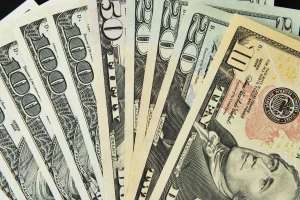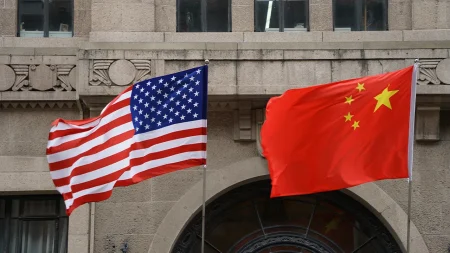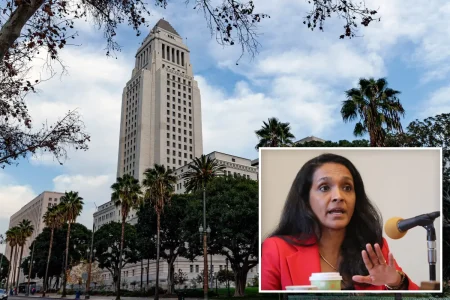FIFA’s Infantino and Trump: An Unlikely Alliance in International Politics and Sport
Global Power Players Forge Connection as World Cup 2026 Approaches
In the high-stakes arena where international sports governance meets geopolitics, a notable relationship has developed between two influential figures from seemingly different worlds. FIFA President Gianni Infantino, the Swiss-Italian lawyer who oversees the world’s most popular sport, has cultivated a surprisingly warm alliance with former U.S. President Donald Trump. This connection, which began during Trump’s presidency, has persisted beyond his time in office and comes at a critical juncture as North America prepares to host the 2026 World Cup across the United States, Mexico, and Canada. Industry insiders and political observers alike have taken note of this relationship, which bridges the typically separate spheres of international football administration and American politics.
The connection between Infantino and Trump might appear unexpected at first glance. FIFA’s global footprint has historically found more natural alignment with international diplomatic circles than with American politics, especially considering soccer’s traditionally modest position in the American sports hierarchy. However, as the United States’ role in global football continues to expand—both through the growing popularity of Major League Soccer and the upcoming World Cup tournament—Infantino has strategically positioned himself alongside powerful American figures. Sources close to both leaders describe their relationship as one built on mutual admiration and pragmatic interests, with Infantino appreciating Trump’s business acumen and global profile, while Trump values the prestige and international platform that FIFA represents. “Infantino recognizes the importance of having strong American allies as football’s influence grows in North America,” noted one FIFA executive who requested anonymity to speak candidly. “And Trump sees in FIFA a global organization that commands attention across continents.”
Presidential Ambitions and Nobel Aspirations
What makes this relationship particularly fascinating is the context of Trump’s well-documented frustration regarding international recognition, specifically his outspoken desire for the Nobel Peace Prize. Multiple former White House staffers have confirmed that Trump has repeatedly expressed disappointment at not receiving the prestigious award, particularly after his administration’s involvement in diplomatic initiatives in the Middle East and on the Korean Peninsula. “The President firmly believed his diplomatic efforts warranted Nobel consideration,” explained a former administration official. “He would often mention the recognition given to his predecessors while questioning why his own international achievements weren’t similarly acknowledged.” Trump’s public comments have occasionally reflected this sentiment, with the former president making direct comparisons between his diplomatic record and that of former President Barack Obama, who received the Nobel Peace Prize in 2009.
Infantino, a shrewd political operator who navigated his way to FIFA’s top position following the organization’s corruption scandals, appears to have recognized this particular sensitivity in Trump’s worldview and has skillfully incorporated it into their interactions. During several documented meetings, Infantino has reportedly praised Trump’s international initiatives in ways that subtly acknowledged this unfulfilled ambition. “Infantino understands the language of ego and aspiration,” suggested Dr. Helena Monteiro, a political scientist specializing in sport diplomacy at the University of Geneva. “He’s masterful at identifying what motivates powerful people and framing football’s interests within that context.” This dynamic illustrates how sports diplomacy increasingly mirrors traditional statecraft, with relationship-building and personal understanding becoming valuable currencies in advancing organizational goals.
Strategic Alignment Amid Global Football’s American Frontier
The timing of this relationship carries particular significance as FIFA navigates its most ambitious expansion into the North American market. The 2026 World Cup will be the largest in history, expanding to 48 teams and requiring unprecedented infrastructure coordination across three host nations. For Infantino, whose presidency has been defined by geographical expansion of the sport and commercial growth, the American market represents perhaps the greatest untapped potential for football globally. The tournament’s economic projections suggest it could generate billions in revenue and accelerate soccer’s already growing popularity in the United States. “The 2026 World Cup is not just another tournament for FIFA; it’s a transformational opportunity to finally establish football as a major American sport,” explained Ricardo Santos, a sports economics analyst at Deloitte. “Having relationships with influential figures across the American political spectrum isn’t just helpful for FIFA—it’s essential.”
This context helps explain why Infantino has maintained this connection despite the polarizing nature of Trump’s political profile both domestically and internationally. While some European football associations have occasionally expressed private concern about FIFA’s proximity to controversial political figures, Infantino has consistently positioned himself as a pragmatic leader focused on football’s expansion rather than ideological alignments. His approach reflects FIFA’s complex position as an organization that must simultaneously maintain neutrality while navigating the political realities of operating across 211 member nations with diverse political systems and leadership. “International sports governance requires a delicate balance,” noted Ambassador Carlos Gutierrez, former chair of the International Sports Relations Commission. “Organization presidents like Infantino must build relationships with leaders across the political spectrum while avoiding becoming entangled in partisan divisions that could undermine their global mission.”
Media Narratives and Public Perception
Media coverage of the Infantino-Trump relationship has varied significantly across different regions and political contexts. American sports media has generally focused on the practical implications for the 2026 tournament preparations, while international outlets have more frequently analyzed the relationship through geopolitical lenses. European publications have occasionally questioned whether such high-profile political associations risk compromising FIFA’s stated commitment to political neutrality. “There’s always tension when sports and politics intersect,” said Jennifer Doyle, sports editor at The International Observer. “The challenge for figures like Infantino is maintaining enough distance to preserve institutional independence while building the necessary relationships to advance their organization’s interests.” Social media reactions have similarly reflected regional and political divides, with reactions ranging from pragmatic approval to concerns about FIFA’s independence.
Both leaders have leveraged this relationship in ways that serve their respective interests. For Trump, association with the world’s most popular sport provides a connection to global audiences that transcends political boundaries. For Infantino, who secured a third term as FIFA president in 2023, maintaining strong relationships with influential figures in FIFA’s most important emerging market demonstrates strategic foresight to his constituency of football associations. As preparations for the 2026 World Cup accelerate, industry analysts expect this relationship to continue evolving, potentially influencing aspects of tournament organization, commercial partnerships, and the broader trajectory of soccer’s growth in North America. “The Infantino-Trump relationship ultimately reflects the increasingly complex intersection of sports, politics, and global business,” concluded Dr. Jonathan Rowe, professor of Sports Governance at Columbia University. “Whether this represents a new model of sports diplomacy or raises concerns about appropriate boundaries between sports and politics remains an open question that will likely define Infantino’s legacy as FIFA president.”







